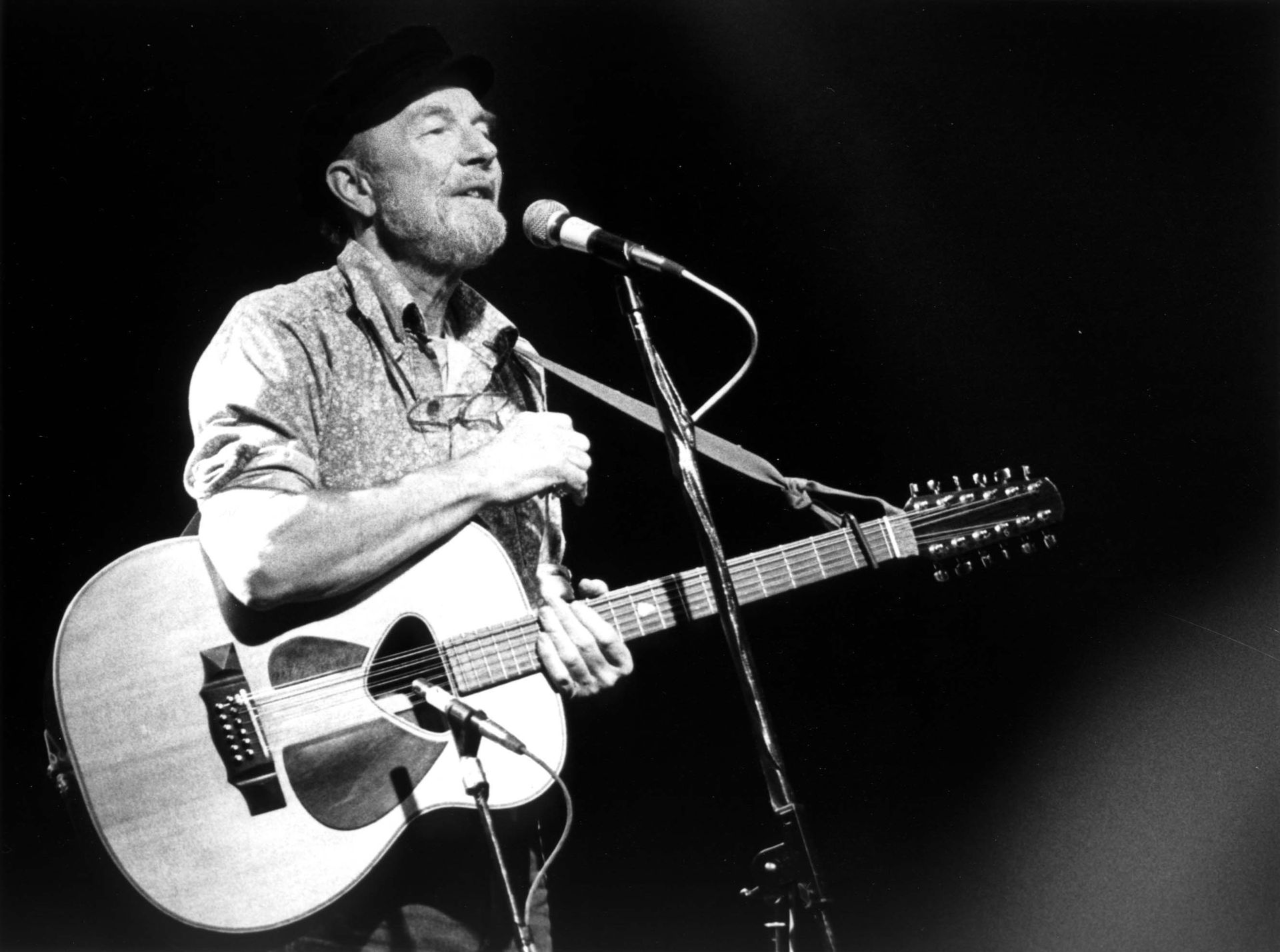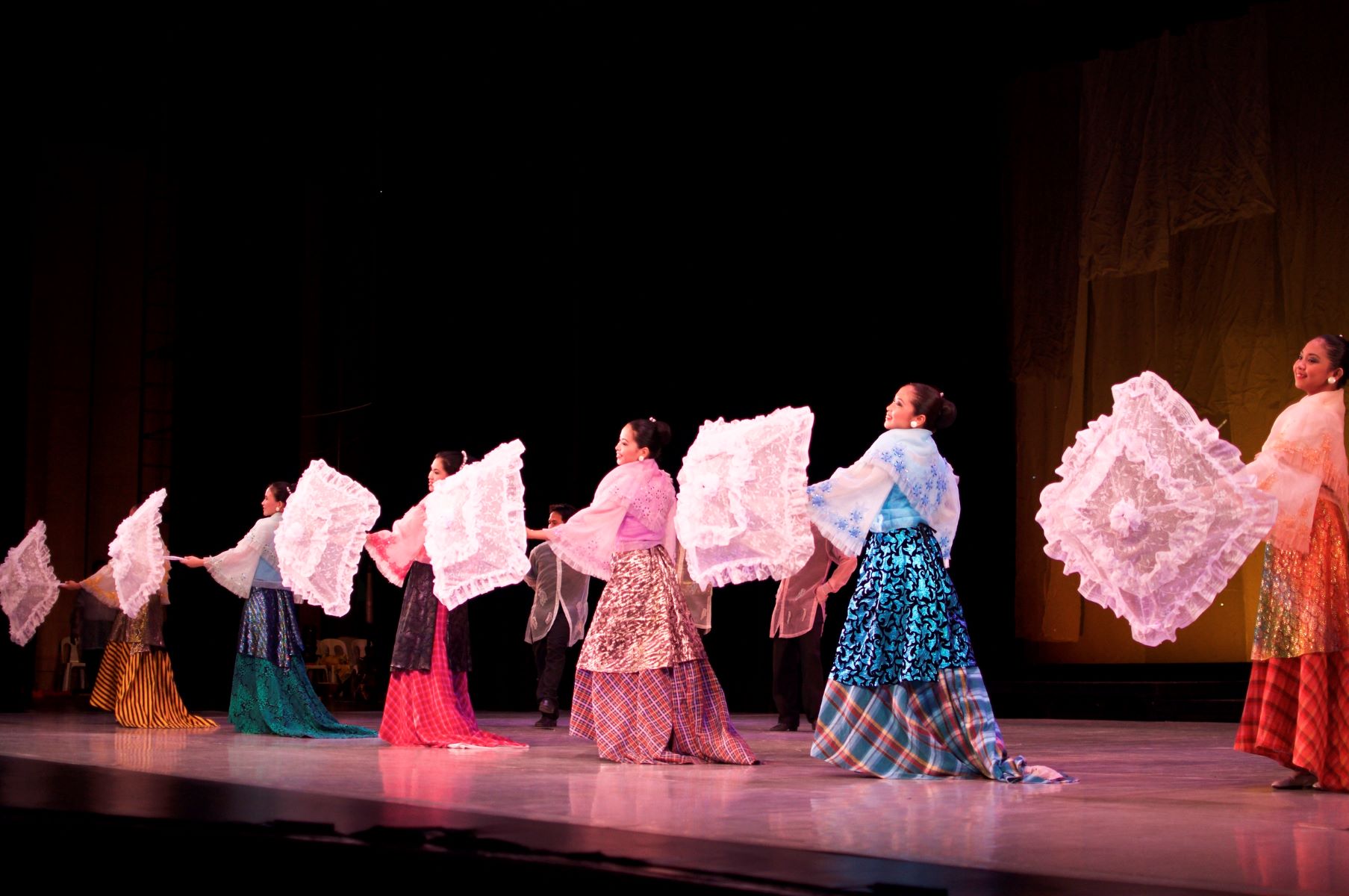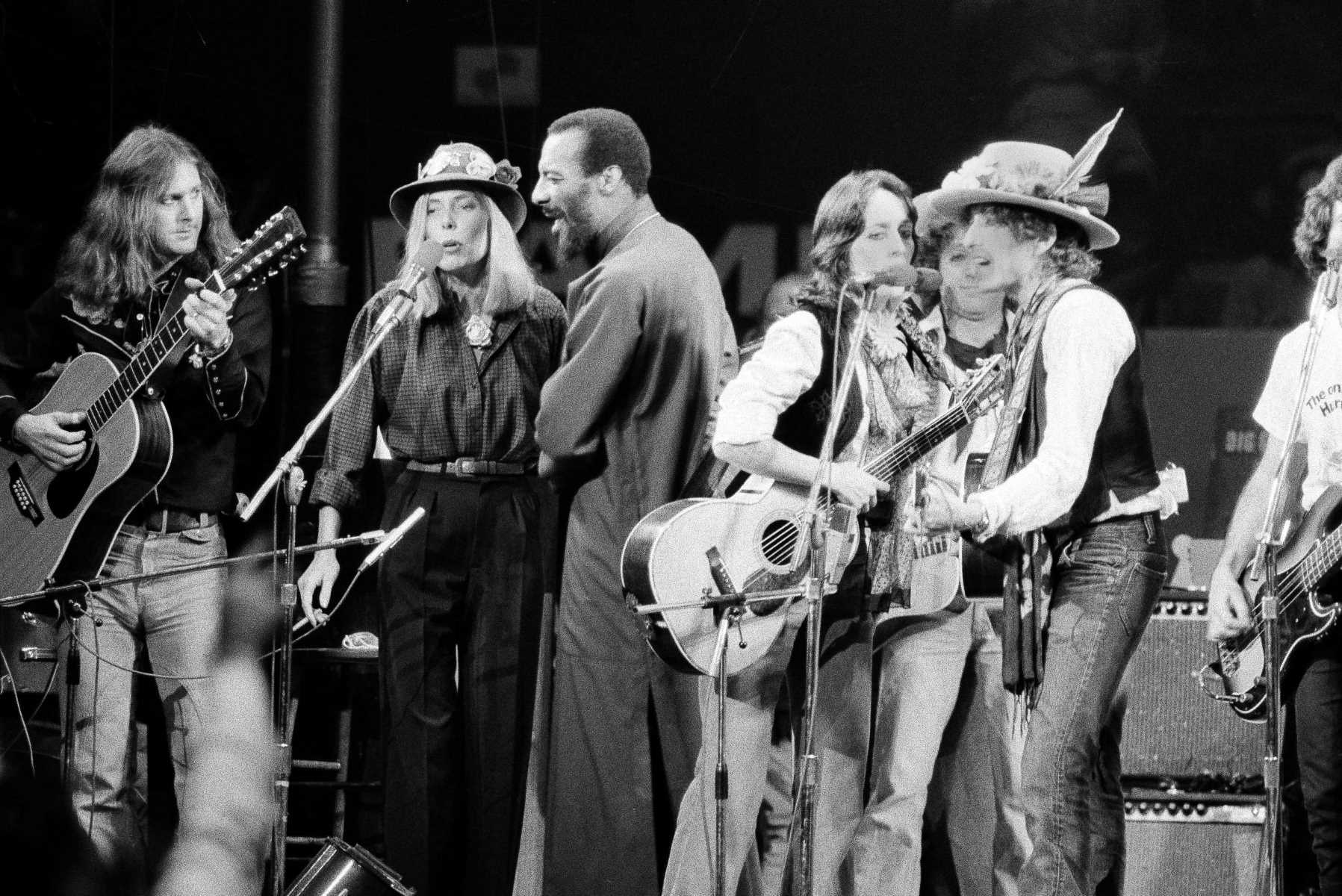Home>Genres>Folk>What Makes This Land Is Your Land A Folk Song


Folk
What Makes This Land Is Your Land A Folk Song
Modified: January 22, 2024
Discover the rich history and significance of "This Land Is Your Land," a timeless folk song that captures the spirit of American life, culture, and unity in the genre of folk music.
(Many of the links in this article redirect to a specific reviewed product. Your purchase of these products through affiliate links helps to generate commission for AudioLover.com, at no extra cost. Learn more)
Table of Contents
Introduction:
The folk song “This Land Is Your Land” holds a special place in the hearts of many Americans. Its inspiring lyrics and melodic composition have captured the essence of the American spirit for generations. This iconic song has become a symbol of unity, social justice, and the beauty of the American landscape.
Written and composed by the legendary folk artist Woody Guthrie in the 1940s, “This Land Is Your Land” has transcended its origins to become a beloved anthem of the American folk tradition. Its message of inclusivity and ownership of the land resonates with people from all walks of life, making it one of the most recognizable and cherished songs in American music history.
From its humble beginnings, “This Land Is Your Land” has grown to become a symbol of hope and unity. Its timeless lyrics highlight the beauty of the American landscape and underscore the importance of coming together as a nation. Throughout the years, the song has been performed by numerous artists and embraced by various social movements, solidifying its place as a beloved folk classic.
Origins of “This Land Is Your Land”:
The origins of “This Land Is Your Land” can be traced back to the 1940s when Woody Guthrie—a prolific singer-songwriter and activist—penned the iconic folk song. Guthrie was inspired by the iconic American folk tune “Oh, My Darling Clementine” and sought to create a song that reflected the vast beauty of the American landscape.
Guthrie’s intent was to write a song that celebrated the diversity of the American people and emphasized the idea that the land belongs to everyone. The lyrics of the song reflect Guthrie’s observations and experiences as he traveled across the country during the Great Depression.
Initially titled “God Blessed America,” the song was a response to Irving Berlin’s popular patriotic song “God Bless America.” Guthrie wanted to offer an alternative perspective—one that highlighted both the extraordinary beauty of the land and the struggles faced by ordinary Americans during that time.
The song underwent a transformation and evolved into “This Land Is Your Land” as we know it today. Guthrie’s composition incorporated verses that celebrated various regions of the United States, including the Rocky Mountains, the Gulf Stream waters, and the Redwood forests. Each verse painted a vivid picture of the natural beauty found throughout the country.
Despite its origins in the 1940s, “This Land Is Your Land” did not achieve widespread recognition until the 1960s. During the folk revival era, artists like Bob Dylan and Pete Seeger popularized Guthrie’s music, helping to solidify “This Land Is Your Land” as a beloved folk classic.
Today, the song serves as a reminder of the importance of unity and the shared ownership of the land. Its enduring popularity speaks to the universal connection that people have with the American landscape and their fellow citizens. “This Land Is Your Land” continues to be sung and cherished by generations, standing as a testament to Guthrie’s timeless message.
Songwriter Woody Guthrie:
Woody Guthrie, born in 1912 in Okemah, Oklahoma, was a prominent American folk musician, singer-songwriter, and social activist. He is best known as the creator of the iconic folk song “This Land Is Your Land,” which has become an anthem of the American folk tradition.
Guthrie’s music and songwriting were deeply influenced by his experiences during the Great Depression and the Dust Bowl, which had a profound impact on the lives of many Americans during that time. His lyrics were often characterized by a strong sense of social justice and empathy for the working class.
Throughout his career, Guthrie used his music as a platform to raise awareness about political and social issues. He wrote songs about the struggles of workers, displacement, poverty, and inequality. His songs resonated with ordinary people who found solace and understanding in his heartfelt lyrics.
In addition to “This Land Is Your Land,” Guthrie is also known for other influential songs such as “Pastures of Plenty,” “Deportee (Plane Wreck at Los Gatos),” and “Union Maid.” His music captured the zeitgeist of the times and became an integral part of the American folk music tradition.
Guthrie’s music not only reflects his own experiences and observations but also serves as a document of the social and political landscape of the era. His songs were a powerful tool for expressing the hopes, fears, and aspirations of the working class.
Guthrie’s musical legacy extends beyond his own compositions. Many musicians and artists, including Bob Dylan and Bruce Springsteen, have cited Guthrie as a major influence on their own work. His songs continue to inspire and resonate with audiences around the world, carrying on his message of empathy and social justice.
Tragically, Guthrie’s life was cut short in 1967 when he succumbed to complications from Huntington’s disease, a degenerative neurological disorder. However, his music and legacy live on, reminding us of the power of folk music to address social issues and stir the collective soul.
Controversies Surrounding the Song:
Despite its beloved status, “This Land Is Your Land” has faced its fair share of controversies and debates over the years. These controversies stem from differing interpretations of the song’s intended message and some of its original verses that were often left out or altered in popular renditions.
One of the main points of contention revolves around the song’s eighth verse, which includes the line “There was a big high wall there that tried to stop me.” Some argue that this verse was meant to criticize private property rights and social inequality, while others interpret it as a critique of government interference.
Another controversy surrounding the song is related to its political implications. Some feel that “This Land Is Your Land” has been co-opted and used to promote a false sense of patriotism, overshadowing its original message of inclusivity and social justice. Critics argue that the song has been sanitized and transformed into a generic national anthem, losing its original subversive nature.
In recent years, there have been discussions about the need to acknowledge and incorporate the song’s lesser-known verses that highlight the struggles and injustices faced by marginalized communities. These verses address issues such as poverty, hunger, and the displacement of Native Americans. By including these additional verses, proponents argue that the song becomes a more honest portrayal of the American experience.
However, it’s important to note that despite these controversies, “This Land Is Your Land” has remained a powerful symbol of unity and the enduring spirit of the American people. Its ability to evoke a sense of pride, belonging, and shared ownership of the land has transcended any debates surrounding its interpretation.
Ultimately, the controversies surrounding “This Land Is Your Land” serve as a reminder of the complexity and depth of folk music. The song’s multiple interpretations and the debates it sparks only highlight its continued relevance and importance as a reflection of the ever-evolving American experience.
Influence and Impact of “This Land Is Your Land”:
“This Land Is Your Land” has had a profound influence on both the music industry and the broader cultural landscape. Its enduring popularity and widespread recognition have ensured its place as one of the most celebrated and impactful folk songs in American history.
One of the key contributions of “This Land Is Your Land” is its role in inspiring future generations of musicians, particularly within the folk genre. Artists such as Bob Dylan, Pete Seeger, Joan Baez, and Bruce Springsteen have all been influenced by Woody Guthrie’s music and have performed their own renditions of the song. These performances have helped keep the song alive and introduced it to new audiences.
The song’s message of inclusiveness and unity has also made it a powerful anthem for various social and political movements. During the Civil Rights Movement in the 1960s, “This Land Is Your Land” was sung at protests and rallies, serving as a rallying cry for equality and justice. It has also been adopted by environmental activists and movements advocating for land preservation and conservation.
Beyond its impact on music and activism, “This Land Is Your Land” has seeped into popular culture, making appearances in films, commercials, and even being sung in schools and community events. Its recognizable melody and relatable lyrics have made it a versatile and enduring part of American culture.
The song’s influence is not limited to the United States. It has also resonated with people around the world, becoming a symbol of the American spirit and ideals. Its universal message of belonging and the shared ownership of the land transcends borders and continues to inspire people from diverse backgrounds.
Despite controversies and debates surrounding the song’s interpretation, the enduring appeal and impact of “This Land Is Your Land” cannot be denied. It remains a powerful reminder of the importance of social justice, unity, and the beauty of the American landscape.
As we continue to navigate a changing world, the song’s timeless message of inclusivity and belonging will undoubtedly continue to resonate with future generations, solidifying its place as a beloved folk classic.
Conclusion:
“This Land Is Your Land” stands as a testament to the enduring power of folk music to inspire and unite people. Woody Guthrie’s timeless composition has captured the hearts of millions and has become an iconic anthem of the American folk tradition.
From its humble origins to its widespread recognition, the song has experienced both praise and controversy. However, its legacy as a symbol of unity, social justice, and the beauty of the American landscape remains steadfast.
The song’s impact extends beyond the realm of music. It has played a role in shaping social and political movements, providing a rallying cry for equality, justice, and environmental advocacy. Its universal message of inclusivity and shared ownership of the land has resonated with people around the world, transcending borders and enriching the global cultural landscape.
Despite differing interpretations and debates about its full set of lyrics, “This Land Is Your Land” continues to be cherished and sung by generations. Its familiarity and heartfelt lyrics create a sense of belonging and pride in one’s country.
The song’s influence can be seen in the countless artists who have been inspired by it and the ways it has permeated popular culture. From Bob Dylan to Bruce Springsteen, many musicians have paid tribute to Guthrie’s masterpiece, ensuring its lasting impact on the music industry.
As we reflect on the significance of “This Land Is Your Land,” we are reminded of the power of music to evoke emotions, unite communities, and inspire change. Its message of inclusivity and the common ownership of the land serves as a timeless reminder of the values that make America unique.
While controversies and debates may surround the song, its enduring legacy as a quintessential folk classic cannot be denied. “This Land Is Your Land” continues to serve as a powerful symbol of hope, unity, and the enduring spirit of the American people.
So, let us join together, sing along, and celebrate the beauty and diversity of our land with this iconic folk anthem.











